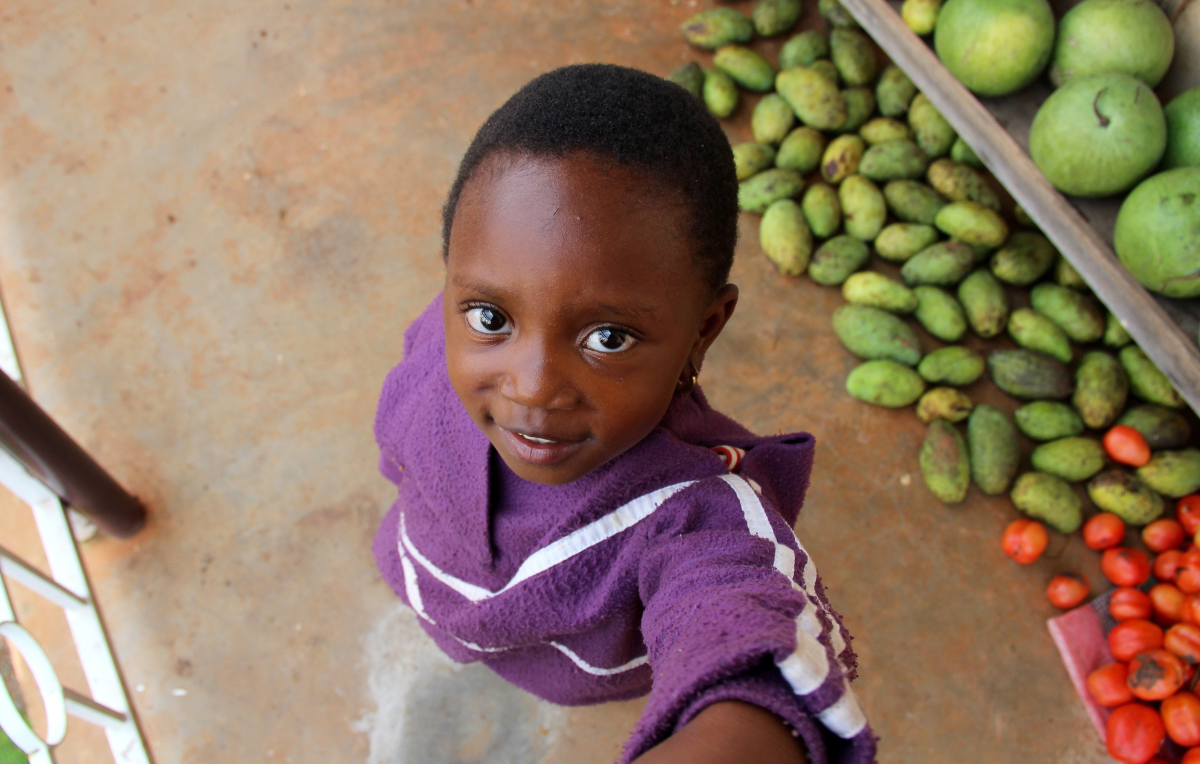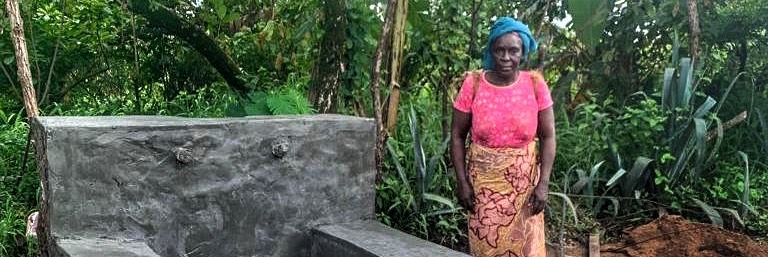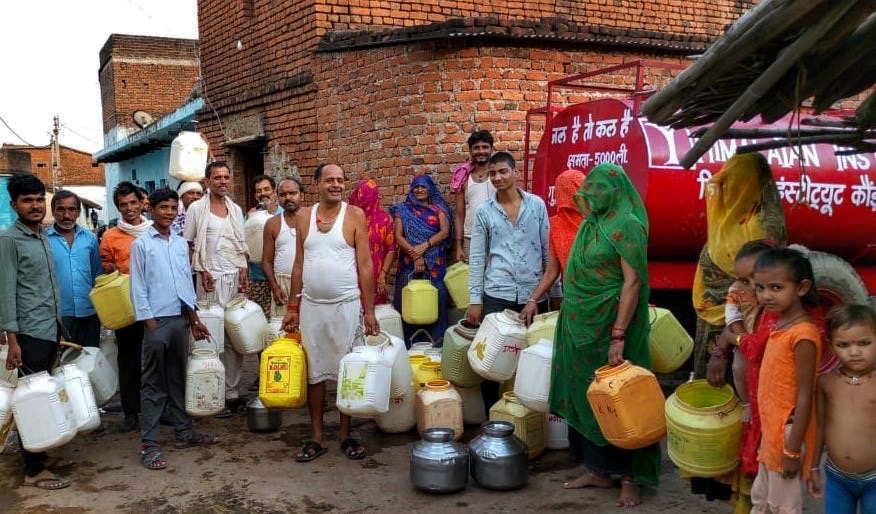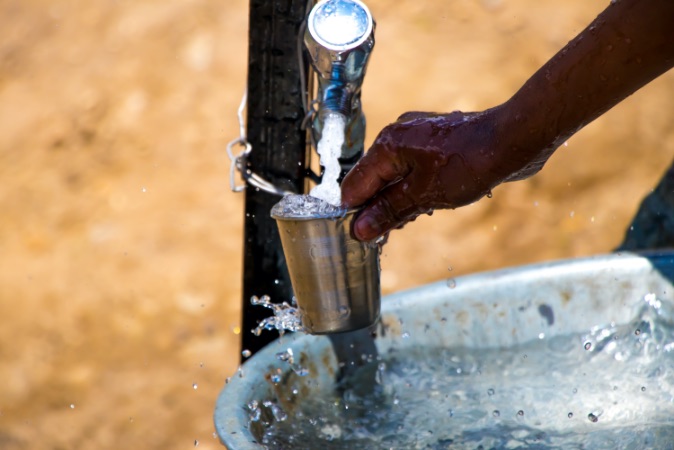Filmed December 7, 2022
“Without clean water, things won’t move. I can’t cook. I can’t wash things. So water is really, really essential. It’s one of the very basic necessities that people really need in order to be functional and productive. Consistent access to water will ensure a family is productive, and that it will then be able to flourish.”
HI Humanitarian’s 2023 Clean Water and Public Health Fund
End of Year Panel Discussion and Announcement of Our Annual Fundraising Campaign
“Without clean water, things won’t move. I can’t cook. I can’t wash things. So water is really, really essential. It’s one of the very basic necessities that people really need in order to be functional and productive. Consistent access to water will ensure a family is productive, and that it will then be able to flourish.”
Among so many other informative, enlightening facts and acknowledgments shared in the recent panel discussion held with key members of the Himalayan Institute’s Humanitarian team, these were the words that made the most lasting impression. The panel’s facilitator, Jeff Abella, Director of the Himalayan Institute’s Humanitarian Projects and Managing Director of HI Cameroon (HIC), had asked Eucharia Kuoh, Lead Health Expert for the HIC team and a full-time working mom, if she could speak to the access, or rather, the lack of access to clean water, and how it can change the dynamic in a family, including the dynamic in economic outcomes for that family. Her response was simple, yet saturated with wisdom, and thoroughly eye-opening.
Functionality, productivity, flourishing—these were the words Eucharia used. She did not speak merely to the obvious facts of thirst and hunger that most often come to mind for many of us when considering the challenges that accompany lack of access to clean, safe water. Instead, she spoke to the absolute interconnectedness and interdependence of water throughout all aspects of life. Without clean water, things won’t move. Things—won’t—move. The depth and profundity of this statement are undeniable.
Going deeper, we can consider an even more universal perspective of Eucharia’s insightful words. One of the most common definitions for the word tantra, is “to weave.” Inherent in the broader and most practical scope of that meaning is its reference to the interconnectedness of all living beings, all of nature, and in essence, all of life. While we could assert that energy and the breath are likely the most important “threads” in that subtle weaving of all of life—the “Golden Threads,” in fact—the undeniable life essentials of clean air and clean water follow very closely behind. Providing one of the most fundamental ways through which so many things ‘move,’ clean water is an absolutely vital thread in life’s great weaving.
Have you ever been without water for a day, or even just a few hours? If you have, then you’ll definitely be able to relate: it’s a lot like not realizing just how much each body part relies on the others until one is not functioning at its usual 100%. Everything takes longer to do, if you’re even able to get it done at all. It takes more time, more planning, more energy overall. As Pascaline Beri, our local Community Outreach Coordinator for HI Cameroon points out, many of the families in the communities we serve often have to walk for miles every single day to collect and carry home water from the nearest swamps, and that water is really not even very clean. For these families, collecting water can take up most of the day, and then they must get up and go do it all over again the next day, and the next day, and the next. This leaves little to no time at all for a family’s functionality and productivity to evolve, much less flourish.
Extreme dry seasons that make access to clean water even more challenging are typical for all of the communities that HI Humanitarian currently supports in Cameroon and in India. “Khajuraho is a ‘rain shadow’ district,” explains Ishan Tigunait, Executive Director of the Himalayan Institute and Managing Director of HI India. “This means that it is chronically drought-stricken because of its unique geography, due to the way the climatic pattern has evolved. More recently, climate change has dramatically accelerated drought in this area. As we start moving into April, May and June, imagine 120 degree fahrenheit heat. It’s like you’re in an oven. All the water dries up. Deep wells even begin to dry up.”
Each year, the HI Humanitarian team chooses a specific initiative to highlight and focus their fundraising efforts toward that aims to further expand the reach and realization of the organization’s overall, wider developmental strategy and goals. The recent, persistent challenges of COVID-19 coupled with the worsening climate crisis are the major catalysts driving the Himalayan Institute’s program focus for 2023: clean water. The critical need for clean, safe water has emerged unequivocally as the most impactful next step we and our many generous supporters can and must take in the ongoing commitment to bringing greater self-empowerment to all who seek it. Remember the words of Eucharia, “Water brings functionality, productivity and flourishing.” Essentially, water brings empowerment.
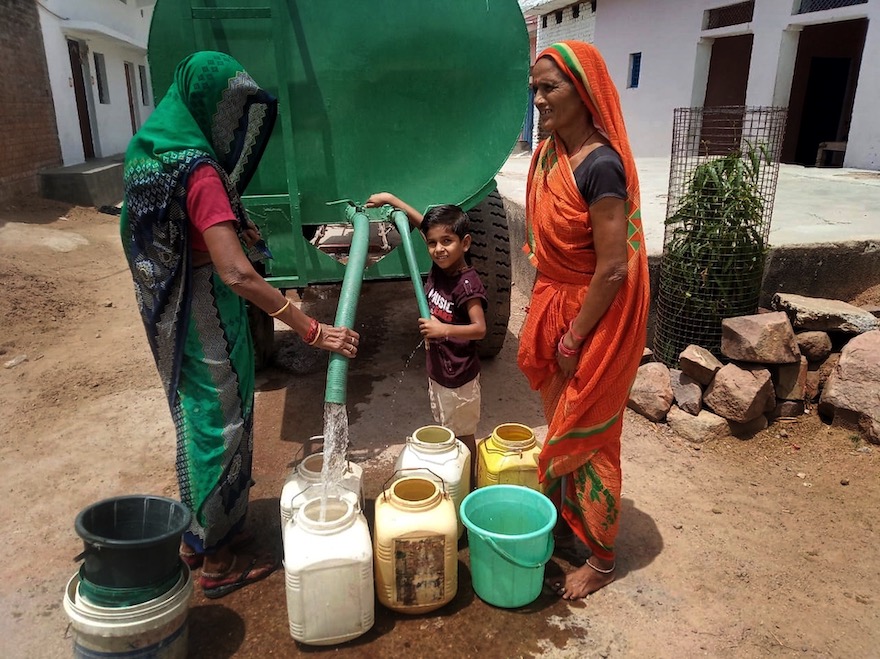
Alat Shanti Tigunait, Developmental Strategist for HI Humanitarian Projects, shares some staggering facts about the water crisis of today’s world:
- Waterborne illnesses contribute to millions of deaths each year
- One life is lost every 10 seconds due to water contamination
- 2.3 billion people live in water-stressed areas
- Over 2 billion people don’t have access to proper hygiene services: soap, hand-washing facilities, etc.
She goes on to share, “This makes it very difficult to combat waterborne illnesses. But what we also know is that by combining education about hygiene and sanitation with actually providing the tools to not only decontaminate water but also store it safely, thereby creating systems to make clean water consistently accessible, we can make a noticeable impact on decreasing the shocking rate of unnecessary deaths due to dirty water.”
She adds, “The problem of dirty water doesn’t just impact health. It also impacts economies, the environment, and overall quality of life. It keeps children from being able to regularly attend school because they are sick. Adults miss work because they are ill or because their children are ill.” This demonstrates once again just how interwoven the fundamental life-thread of clean water truly is.
Building a Strong Foundation
The Himalayan Institute has been involved with each of these communities in Cameroon and India for over a decade. The process of gaining the trust and respect of the people has been a long yet necessary and intentionally mindful one. A strong foundation of trust and respect is imperative for being able to effectively engage with any community, and hence, bring meaningful, education-based behavioral changes.
During the panel discussion, Pascaline shares that the responses she sometimes receives when the team has not been able to visit and hold educational workshops in one of their regularly-served communities for a while is one of, “Where have you been? We need you! We’ve missed you!” This is a huge “social validation,” Jeff acknowledges, “that the programs we’ve introduced and maintained over the past decade are now not simply being driven to them, but rather the programs are now being pulled by them to them. That’s an amazing organic momentum that we’ve established.”
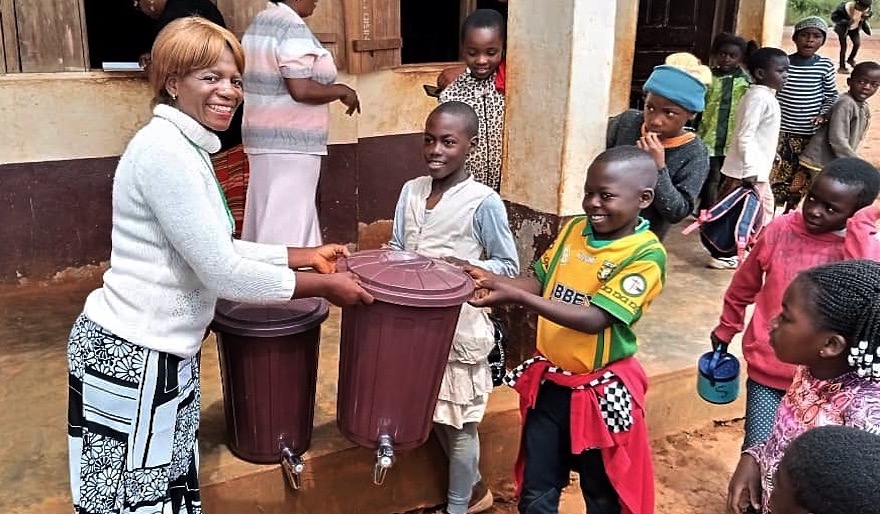
Some of our past initiatives that have successfully contributed to laying this strong foundation for the next stage include:
- Initially, simply introducing ideas about hygiene and sanitation; then subsequently, bringing in ongoing weekly educational workshops about health, hygiene and sanitation
- Installing and continuously expanding the reach and distribution of clean water hand-washing stations to schools, churches, and entire communities
- Adding the construction of a traditional well which is now being used as a water source to bring water in tankers to nearby villages of HI’s campus in Khajuraho, India
- Implementing and sustaining traditional as well as vocational education programs
With over a decade of building a strong foundation, based on authentic relationships of mutual trust and respect, the Himalayan Institute Humanitarian’s local teams and initiatives are perfectly poised to bring even greater transformational impact to the communities we serve in 2023.
The team agrees that the 2023 initiative feels as though it’s actually been in development for a very long time. The current high-receptivity level of the communities is proof that the cultural bond of trust and respect takes time and cannot be overlooked. With this in mind, the objectives for the 2023 campaign have been laid out and then further distilled for achieving the greatest efficiency and effectiveness possible.
The Himalayan Institute’s 2023 Clean Water and Public Health Fund is designed to support 3 specific resource pools:
- Unlocking of access to clean and safe drinking water for nearly 8,000 people in India and Cameroon
- Providing public health classes for 25,000 people
- Providing hand-washing stations for 50 schools in Cameroon, ultimately reaching 25,000 people
Spirituality in Action
In closing, Ishan shares his awe and gratitude for all of the support and hard work that has come through over the past 10+ years—not only from the HI Humanitarian teams on the ground, but also from the Himalayan Institute’s generous Mission Members, students and various donors. He believes, “Where the Institute currently stands as an educational and humanitarian organization is nothing short of a beautiful, blossoming embodiment of its aspirational identity of spirituality in action,” and more specifically, its principle vision and mission to inspire, educate, and empower all who seek to experience their full potential. “What we are accomplishing here together, collectively,” he shares, “embodies the spirit of spirituality itself.”
The panel discussion was rich, informative and inspirational—packed with essential facts, time-revealed wisdom, and most of all, an infectious spirit of hope, compassion, intentionality, focus, resolve, mutual respect and mutual upliftment. It highlights the absolute, purest essence of our human interconnectedness, and the irrefutable sacred weaving of that which moves through all of us…as we continue being and becoming, together.
The Himalayan Institute’s humanitarian initiatives in Cameroon and India depend upon the love and support of our donors. The progress and development we have seen over the years could not have been possible without you, and for this we are truly grateful. Together, we are creating peaceful, flourishing communities throughout Cameroon and India.
For more information about our Global Humanitarian Projects, please click here. If you would like to donate, please click here.
Sign up for our newsletter to receive updates on our humanitarian projects!

